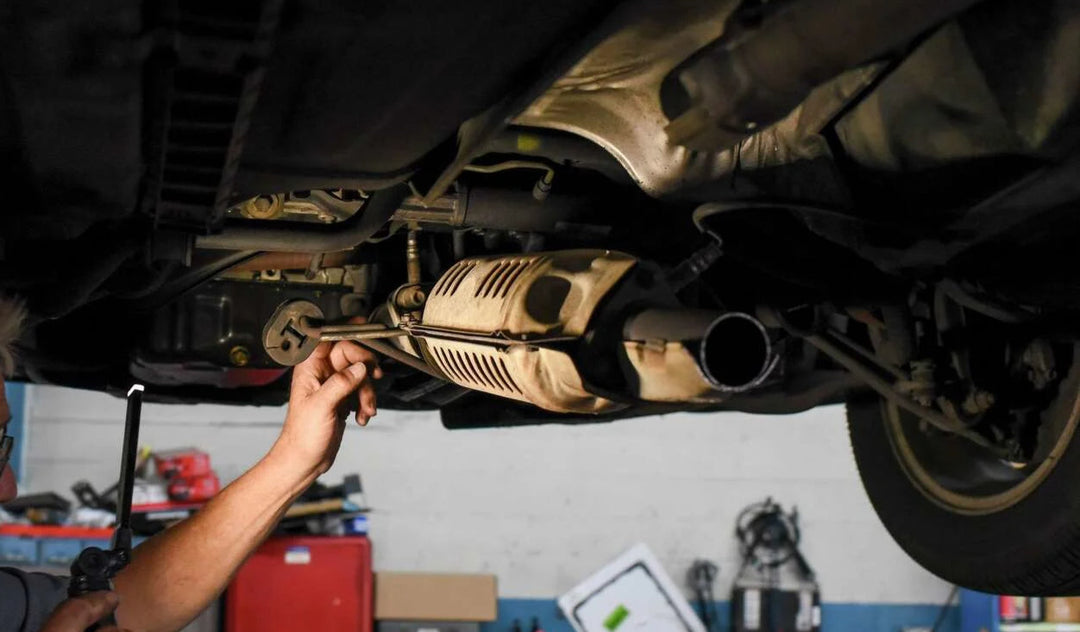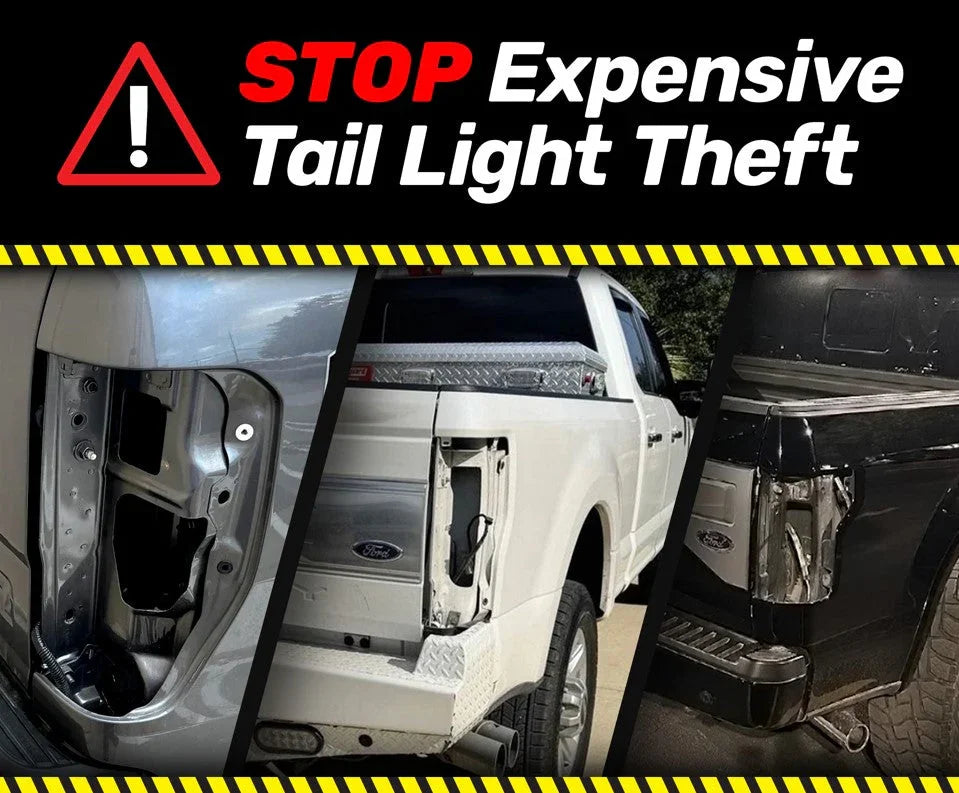If your catalytic converter gets stolen, you may be wondering if it’s covered by your vehicle insurance and how to make a claim for it. This post tells you what you need to know before you make a claim, and how to ensure the repairs are done properly.
How can I tell if my catalytic converter has been stolen?
You won’t be able to tell if your catalytic converter has been stolen just by looking at your vehicle but once you start it you will definitely notice that something isn’t right. These are the signs that your catalytic converter has been stolen, and your vehicle may display one or several of these signs:
- Your vehicle is louder than usual
- You notice an abnormal smell
- The check engine light is on
- Uneven acceleration and/or idling
- Missing parts of the exhaust system
Is catalytic converter theft covered by insurance?
The short answer to the question is typically yes, provided you have full coverage or comprehensive coverage of your vehicle. Your comprehensive deductable will apply, and your insurance company may either want to inspect the vehicle to asses the damage, or ask for supporting materials such as a police report.
For those without full coverage or comprehensive coverage, unfortunately theft will not be covered by insurance. Liability-only insurance policies do not cover any type of vandalism or theft, or damage related to catalytic converter removal.
To find out what kind of coverage you have is as simple as calling your insurance provider. It’s also worth confirming your coverage with your current provider to make sure they cover catalytic converter theft as despite it’s name, comprehensive insurance does not cover everything.
You will also need to find out what your deductable is. This is the portion you pay before your vehicle insurance kicks in. If your deductible is more than the cost of repair, you may not be able to file a claim as insurance only covers damage above your deductible amount.
How do I inform my insurance company that my catalytic converter was stolen?
Suspect your catalytic converter has been stolen? If you are not sure or not able to confirm yourself, the first step is to get confirmation from a mechanic. They can easily tell if your catalytic has been stolen by looking underneath the vehicle to see if it’s missing. Driving a short distance without a catalytic converter shouldn’t hurt the vehicle, but to avoid long term damage to your vehicle and to keep your engine running optimally, the catalytic converter will need to be replaced.
Once you have confirmed that your catalytic converter has been stolen, the next step is to call your local police station and report the theft over the phone. This serves two purposes - The insurance company may request a copy of the report number to allow them to process the claim, and it helps police compile information about which areas are being targeted for catalytic converter theft. This ultimately leads to a great chance of catalytic converter thieves being caught.
Once the police have been noticed it’s time to call your insurance provider and start the process of making an insurance claim. You can do this by calling your insurance company and advising them your catalytic converter has been stolen and you wish to begin the claim process.
Your insurer may email you some forms to fill out or send you a link to complete them online. They may also request some information from you such as your insurance policy number, your date of birth, address or other identifying information.
Depending on the situation and your insurer, you may be asked to get an estimated cost of repair from one or several mechanics. Sometimes the insurer will suggest a shop or they may leave it up to you to choose. The estimate will need to be approved by your insurer before repair work can begin.
Once your claim has been approved and the repair work has been completed, the insurer will settle your claim. This will either be done by reimbursing you for the cost of repair, or your insurer may pay the repair shop directly. The time this takes varies between different insurers and can anywhere between a couple of hours to a few months.
What happens if I can’t drive my vehicle?
It’s generally ok to drive a car without a catalytic converter a short distance, however thieves generally aren’t too careful when they’re sawing off parts and may cause damage to your vehicle, rendering it undriveable.
If you need a tow and have comprehensive coverage, your insurer will likely cover the cost of getting your vehicle towed to the repair shop – however this is something you should confirm with your insurer first.
Depending on how long your car will take to repair your insurer may be able to arrange a rental vehicle. Replacing a catalytic converter isn’t a time-consuming job, but it depends on how readily parts are available for your particular vehicle.
Can I choose where my car is repaired?
Replacing a catalytic converter is not a time consuming nor difficult job so most repair shops will either do the work themselves to subcontract the work out to their preferred exhaust specialist. But if you have a regular mechanic that works on your car, you may be wondering if your insurance company will allow them to carry out the repair.
The answer is it depends on your insurance provider, and where you live. Some providers may insist you take it to a repair shop of their choice. This is because they will have negotiated a contract with a certain repair to control the labor rate, essentially making the cost of repair cheaper to them.
What if my catalytic converter theft insurance claim is denied?
A car insurance claim can be denied for a number of reasons. When an insurance claim is denied your provider will typically send out a letter explaining the factors that led to their decision. If you don’t agree with your insurer providers decision you have several options available.
Gather evidence – This can include police reports, any eyewitness information, photographs or other supporting evidence. Be sure to send photocopies with your resubmitted claim and not the originals.
Write an appeal letter – The letter should outline why you disagree with your insurance providers decision. Provide as much detail as possible, referencing your insurance policy where appropriate.
Contact your states insurance commissioner – Most states will have a special unit to deal with issues such as unfairly denied insurance claims, or a mediation program that will help policyholders negotiate a disputed claim with their insurance provider.
Can the insurance company total my vehicle?
Yes, in some cases where the cost of repairs is greater than the value of the vehicle, an insurance company may just total (or write-off) your vehicle. If your vehicle has had multiple replacements of catalytic converters or is an older vehicle, your insurance may not fix it and opt to give you the value of the car instead. It is therefore important for people to do what they can to prevent theft of their catalytic converters.





